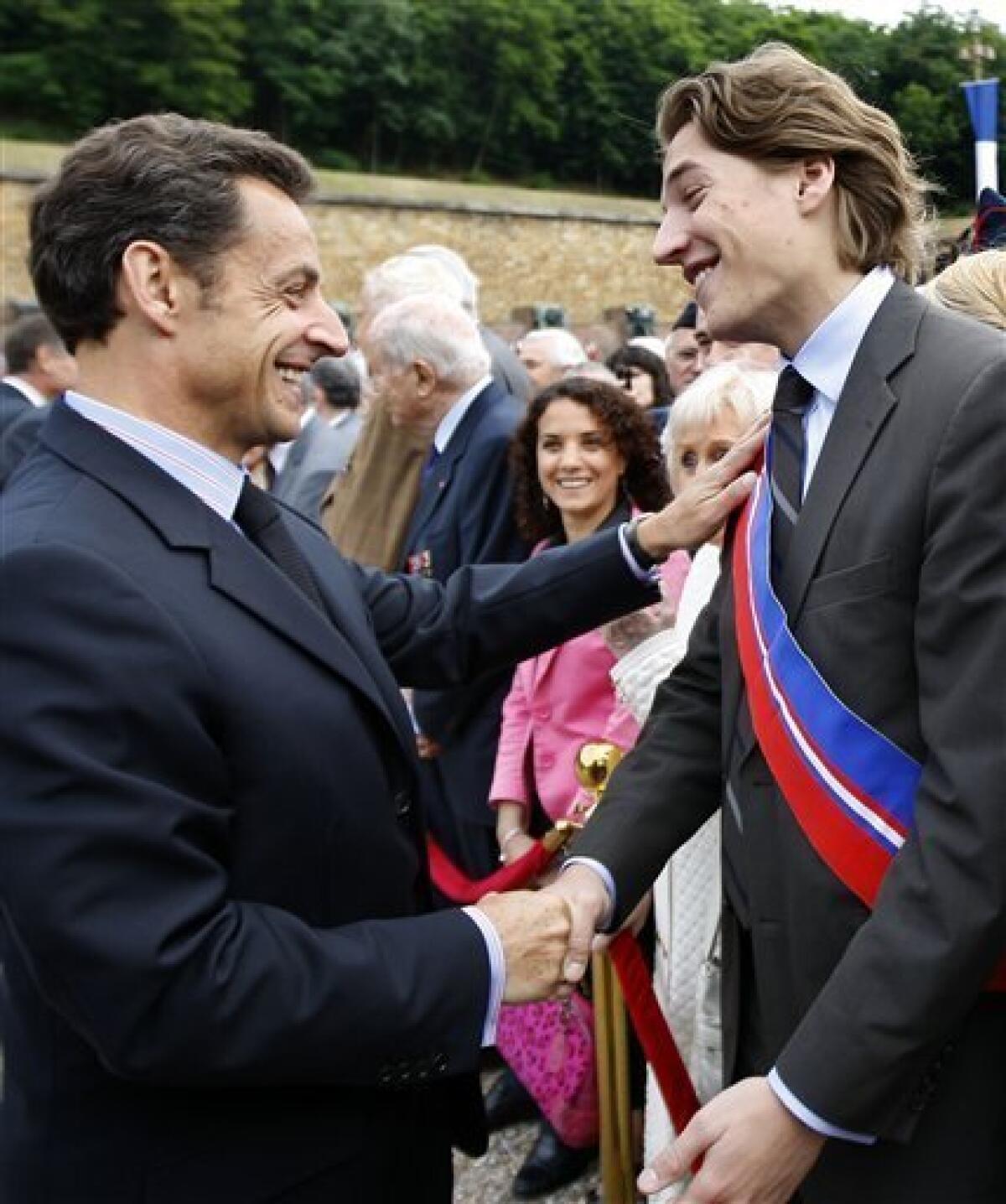Sarkozy’s son wins board post after scandal

President Nicolas Sarkozy’s son was elected to the board of the organization that runs France’s most important business district Friday, after a dramatic withdrawal of his bid for the top spot amid accusations of favoritism that carried political risks for his father.
The president maintained an official silence, then turned to Facebook to say he was proud of his 23-year-old son.
Jean Sarkozy had been the leading candidate to head EPAD, a quasi-governmental organization overseeing real estate and the administration of La Defense, the neighborhood of skyscrapers west of Paris that is home to top companies and the workplace of 150,000 people. He withdrew that bid Thursday night after two weeks of cries of favoritism – and vows not to back down.
The 45-member board – 30 of whom hail from the French president’s conservative UMP party or its allies – voted, as expected, to give him a spot on the board of directors. He will fill the seat of a member who stepped down in October.
Current EPAD President Patrick Devedjian, forced to retire at 65, saluted the “responsible and dignified decision” of Jean Sarkozy, who has not yet finished law school, to withdraw from the running to replace him.
The young Sarkozy’s surprise announcement not to seek the job in a Dec. 4 vote drew salutes of “courage” from the president’s right and sighs of relief from detractors.
President Sarkozy said on a Facebook posting that his son “made a wise and courageous decision. I’m proud of him.”
“This week Jean proved himself in the face of a difficult choice in a context larger than himself,” the president’s posting said.
The whiff of nepotism was threatening to damage Jean’s powerful father, and it was not immediately clear whether the affair would leave the French president unscathed. Even within Sarkozy’s party, voices of dissent had risen.
“I think it’s a trial for the son and the father, a failure that will follow them for a long time to come,” said Jean-Paul Huchon, Socialist president of the Ile de France region that includes Paris and its environs, including La Defense.
There was widespread speculation that the French president had a hand in his son’s resignation, reflected in the headline of the leftist daily Liberation “The Sacrifice of the Son.”
Sarkozy, whose ratings have slipped in the past two weeks, kept an official low profile Friday, his office responding with a “no comment” to queries about his son and his only reaction coming later on Facebook.
A ministerial meeting in an unusually lean presidential schedule, about a plan to create a museum of the history of France, was closed to the media. A reception for soccer officials looking to a 2016 candidacy for France to host Euro championships was followed with a simple communique rather than comments for reporters.
Critics had maintained that Jean Sarkozy was simply unqualified to head EPAD, which his father is looking to expand. Even during his address to board members ahead of the vote, he fended off dissension.
“Amid all the attacks that have been voiced, that I have heard, there is clearly at least one thing you cannot contest,” he said. “It is that we have put the question of La Defense at the heart of the public debate.”
–––
Associated Press writer Sylvie Corbet in Paris contributed to this report.